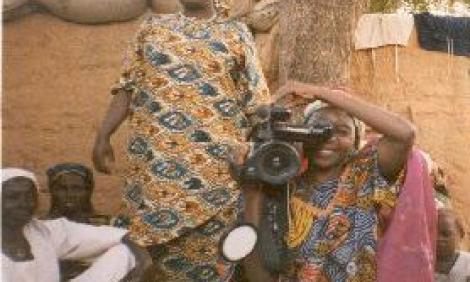In depth
Doing IT on Paper
This article examines the discrepancy between Pakistan's national IT policy and the reality of access and use on the ground. It argues a case for the revision of this policy by taking into existing account socio-cultural inequalities.
In depth
Latin american women take on the internet
"Information technology obviously will not solve the world's problems. But wisely deployed and developed, it has proven to be a powerful tool for advancing social causes. One of the social groups that has been most dynamic in using this technology innovatively for social progress, is the women's movement; and in many aspects, the South has exerted leadership in this process."

In depth
ICTs break Sharia compliances in Africa
Information communication technologies (ICTs) have broken sharia compliances as the women farmers in Nigeria learned how to make their own video films and also take still pictures. However african women continue to face tough challenges in their battle to get their voices and concerns heard in development matters, as revealed a case study of women farmers of Kano in Nigeria presented by Salamatu…
Publication
Engendering Rural Information Systems in Indonesia
The study aims at identifying policies, technologies, institutions and investments needed to improve access to ICTs and promote rural development in Indonesia. A critical part of this study is a gender specific component, to ensure that the strategies developed and recommended are informed by a comprehensive gender analysis, and further integrate gender considerations into national ICT policy,…
Publication
Supporting Women's ICT-Based Enterprises: A Handbook for Agencies in Development
The Handbook was designed for two purposes: (1) to help government and NGO officials to plan, initiate, evaluate and improve ICT-based enterprise projects for women; and (2) for facilitated use by groups of poor women themselves who want to start up, manage and improve ICT-based enterprises.
Publication
Information and Communication Technologies for Rural Development: Issues and Options
The report is based on field visits, interviews with local and central government and non-government organizations and desk reviews carried out between December 2004-April 2005. It aims to identify policies, technologies, institutions and investments needed to improve access to information and communication technologies (ICT) in rural areas in Indonesia. A critical part of this study is a gender…
Publication
ICT for Development Success Stories: Youth, Poverty and Gender
The 100-page publication highlights initiatives that are using Information and Communication Technologies (ICTs) to make a real and meaningful difference in communities around the world, no matter how disadvantaged or isolated they may be. These stories on Youth, Poverty and Gender intend to provide snapshots of the learning process that accompanies the introduction and implementation of ICTs in…
Publication
Putting ICTs in the Hands of Women of Kanpur and "Chikan" Embroidery Workers of Lucknow: Project Evaluation Methodology
This report document is based on a field trip by Dr. Janice Brodman, which aimed to help Datamation Foundation (DF) ensure that their evaluation instruments provide information/data needed to measure project achievements against objectives, and also introduced the infoDev Framework to the DF evaluation team.

Publication
The Gender Digital Divide in Francophone Africa: A Harsh Reality
Women have one chance in three less than men to benefit in the African Information Society. In the “Gender Digital Divide in Francophone Africa” research on six countries (Benin, Burkina FasoBurkina Faso, Cameroon, Mali, Mauritania and Senegal) conducted by the Gender and ICT Network, connections between gender and ICTs were found to be widely unrecognised. Looking at control, content, capacities…
Publication
MEDIA BRIEF: Paddling in Circles while the Waters Rise - Gender Issues in ICTs and Poverty Reduction
Can ICTs help reduce poverty? This paper examines poverty from many different angles: from its definition to systemic causes of global poverty, as well as tools used to address poverty. The study is the part of APC WNSP issue papers series on ICTs for women's rights.




